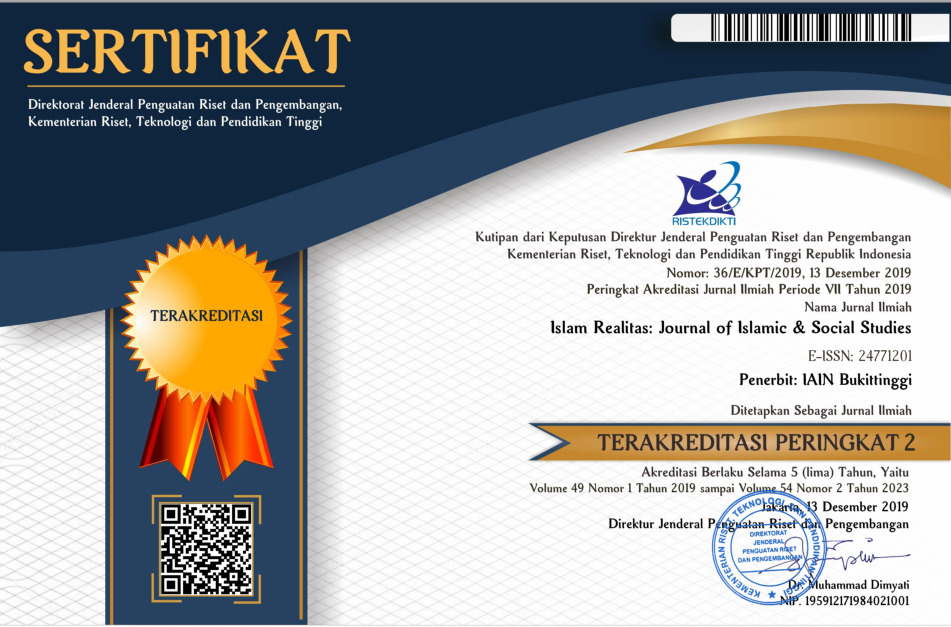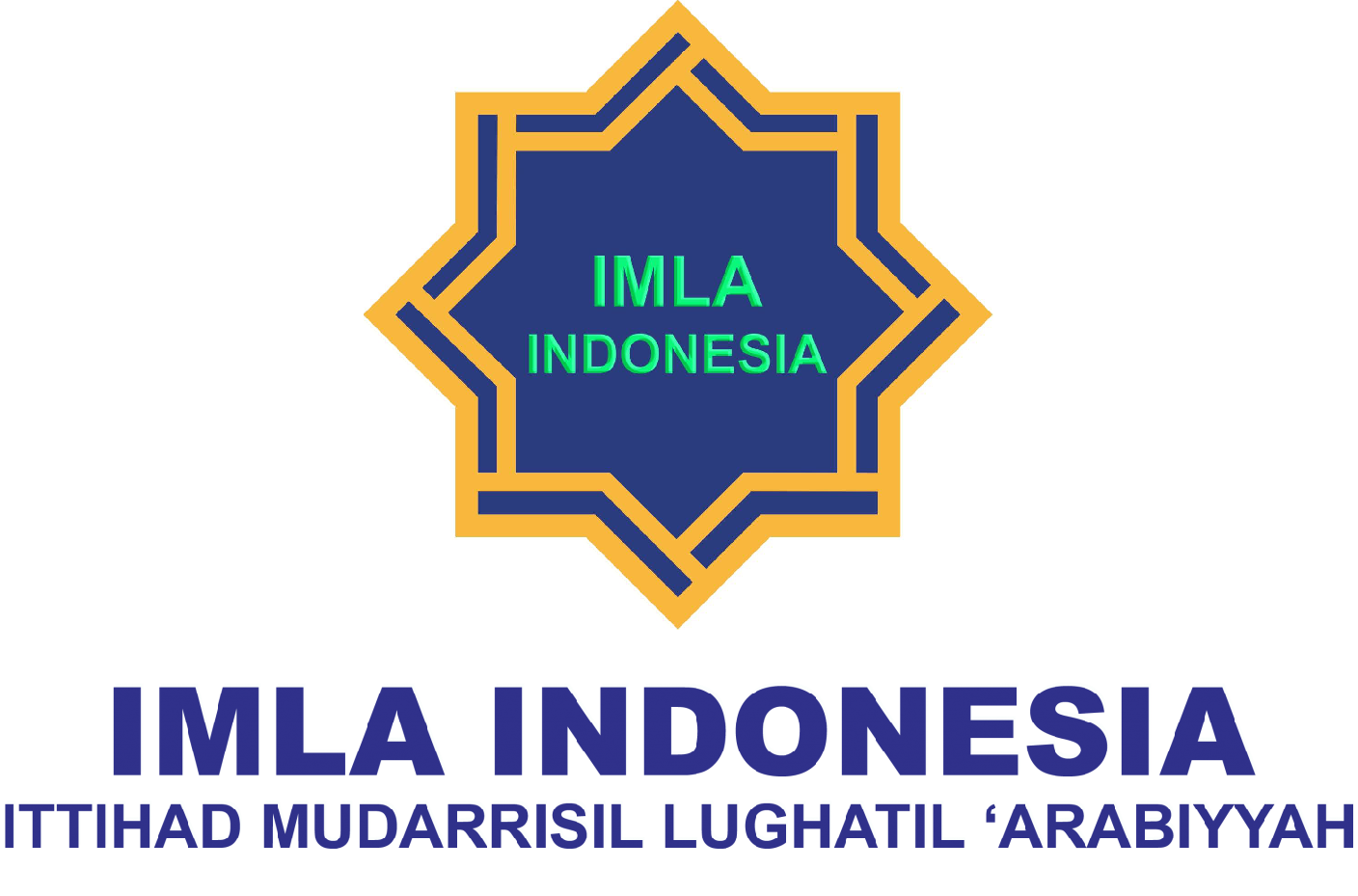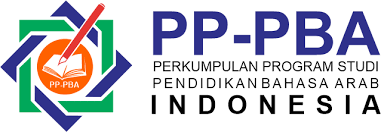Tanfidz An-Nazhariyah As-Sulukiyah fi Ta’lim Al-Mufradat lit-Thullab Al-Judud bi Ma’had Dar-As-Salam Gontor Al-Haram Al-Awal
DOI:
https://doi.org/10.30983/huruf.v1i1.4966Keywords:
Vocabularies Teaching, Behaviorism Theory, New Students.Abstract
Darussalam Gontor Islamic Institution Campus 1 is an educational institution which prefer on Arabic and English in its curriculum. Actually, Arabic for most of new students has become a new difficult language because only a few of them have learned. Due to solving this circumstance, Arabic teaching learning especially vocabularies must be conducted intensively in the beginning of their studies. Behaviourism theory as one of the psychological theories stated that every human receives types of responses from their environment and always communicate each other by their own languages. Therefore, this theory is a compatible in vocabulary teaching learning that requires stimulus, response, reinforcement and language environment. This study purposed to explore behaviourism in conducting vocabularies teaching learning for new students in Darussalam Gontor Islamic Institution. The study is a field researching as kind of descriptive qualitative study. For data collecting, it used observation, interview and written documents. For analysing data, it used interactive method. The study resulted that behaviourism in conducting vocabularies teaching learning for new students were represented in three aspects: 1) positive stimulus from teacher; 2) positive response from students and 3) positive reinforcement from both teacher-student.
معهد دار السلام كونتور الØرم الأول هي مؤسسة تعليمية تÙضل اللغتين العربية والإنجليزية ÙÙŠ مناهجها. ÙÙŠ الواقع ØŒ أصبØت اللغة العربية بالنسبة لمعظم الطلاب الجدد لغة جديدة صعبة لأن القليل منهم Ùقط قد تعلمها. بسبب ØÙ„ هذا الظر٠، يجب إجراء تعلم اللغة العربية خاصة المÙردات بشكل مكث٠ÙÙŠ بداية دراستهم. ذكرت نظرية السلوكية كواØدة من النظريات النÙسية أن كل إنسان يتلقى أنواعًا من الاستجابات من بيئته ويتواصل دائمًا مع بعضهم البعض بلغاتهم الخاصة. لذلك ØŒ Ùإن هذه النظرية متواÙقة ÙÙŠ تعلم المÙردات التي تتطلب التØÙيز والاستجابة والتعزيز والبيئة اللغوية. تهد٠هذه الدراسة إلى استكشا٠السلوكيات ÙÙŠ إجراء المÙردات التي تدرس التعلم للطلاب الجدد ÙÙŠ معهد دار السلام كونتور. الدراسة عبارة عن بØØ« ميداني كنوع من الدراسة الوصÙية النوعية. لجمع البيانات ØŒ استخدمت الملاØظة والمقابلة والوثائق المكتوبة. لتØليل البيانات ØŒ استخدمت طريقة تÙاعلية. نتج عن الدراسة أن السلوكية ÙÙŠ إجراء المÙردات التعليمية لتعليم الطلاب الجدد تمثلت ÙÙŠ ثلاثة جوانب: 1) التØÙيز الإيجابي من المعلم. 2) استجابة إيجابية من الطلاب Ùˆ 3) التعزيز الإيجابي من كل من المعلم والطالب.
Â
References
‘Aisan, Abdul Majid, 1433 h/ 2012 M, Nazhariyat At-Ta’allum Wa Tatbiqatuha Fi Ulum Al-Lughah: Iktisab Al-Maharat Al-Lughawiyah Al-Asasiyah, Al-Qahirah, Dar Al-Kitab Al-Hadits.
Ahmad, Fairus Subakir Wa Himmah Al-Mahmudah, 2016, Lisan Ad-Dhad; Dauriyah Al-Lughah Al-Arabiyah Ta’limuha Wa Adabuha, Al-Hajm 3, Ar-Raqm 2, Desember.
Al-Ghulayaini, Musthofa, 2014, Jami’ud Durus Al-Arabiyah, Beirut: Dar Al-Aqidah
Brown, Douglas, 1994, Usus Ta’alum Al-Lughah Wa Ta’limuha, Al-Juz Ats-Tsalits< Beirut: Dar An-Nahdhah Al-Arabiyah.
Herman, Acep. Metode Pembelajaran Bahasa (Bandung PT Remaja Rosa Karya).
Hermawan, Acep. 2011. Metodologi Pembelajaran Bahasa Arab, Bandung : Cetakan Pertama, Januari, PT. Remaja Rosdakarya
Husain, Mukhtar At-Thahir, 2011, Ta’lim Al-Lughah Al-Arabiyah Lighair An-Natiqin Biha, Ad-Dar Al-‘Alamiyah, Ath-Thab’ah Al-Ula
Ma’ruf, Naif Mahmud, 1998, Khashais Al-Arabiyah Wa Tharaiq Tadrisiha, Beirut, Ath-Thab’ah Al-Khamisah, Dar An-Nafs
Madkur, Ali Ahmad, 1991, Tadris Funun Al-Lugha Al-Arabiyah, Al-Qahirah, Daru As-Syawwaf
Rulam Ahmadi, Memahami Metodologi Penelitian Kualitatif, (Malang: Cet-1, Penerbit Universitas Malang), 2005)
Sugiono, Metode Penelitian Kuantitatif Kualitatif dan R&D, (Bandung: Cetakan ke -21, PT. Alfabeta, 2014)
Downloads
Published
How to Cite
Issue
Section
Citation Check
License
Authors who publish with this journal agree to the following terms:
- Authors retain copyright and grant the journal right of first publication with the work simultaneously licensed under a Creative Commons Attribution-ShareAlike 4.0 International Licensethat allows others to share the work with an acknowledgment of the work's authorship and initial publication in this journal.
- Authors are able to enter into separate, additional contractual arrangements for the non-exclusive distribution of the journal's published version of the work (e.g., post it to an institutional repository or publish it in a book), with an acknowledgment of its initial publication in this journal.
- Authors are permitted and encouraged to post their work online (e.g., in institutional repositories or on their website) prior to and during the submission process, as it can lead to productive exchanges, as well as earlier and greater citation of published work (See The Effect of Open Access).





